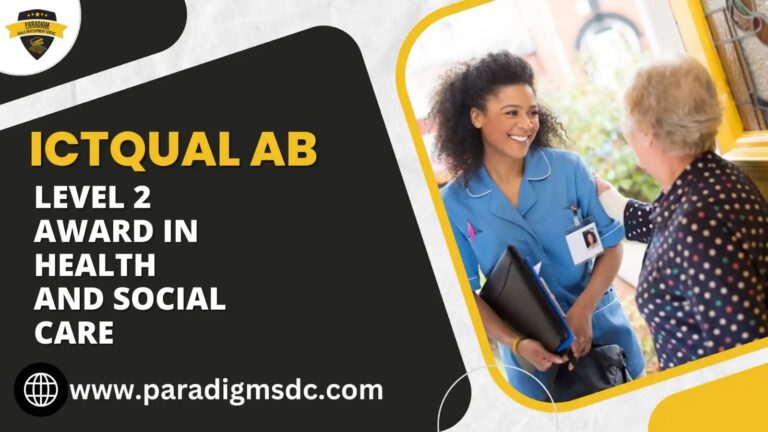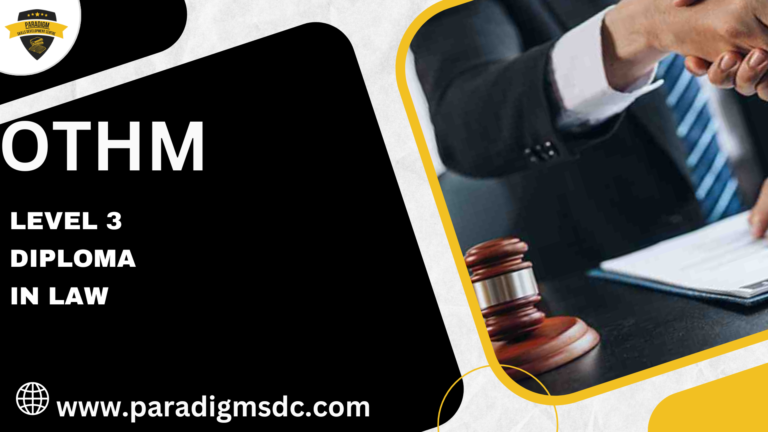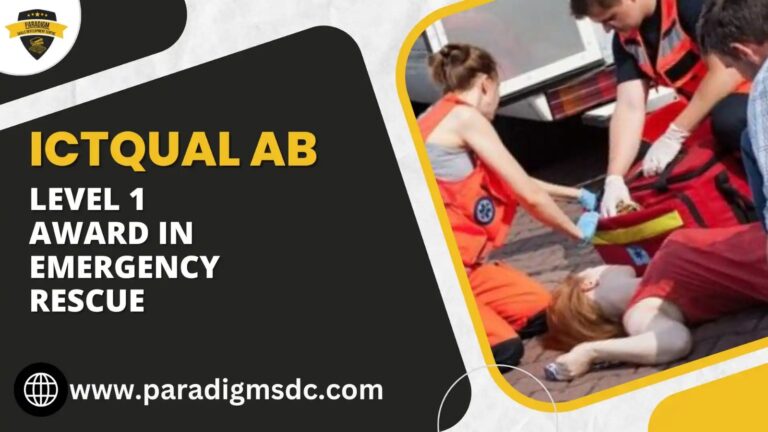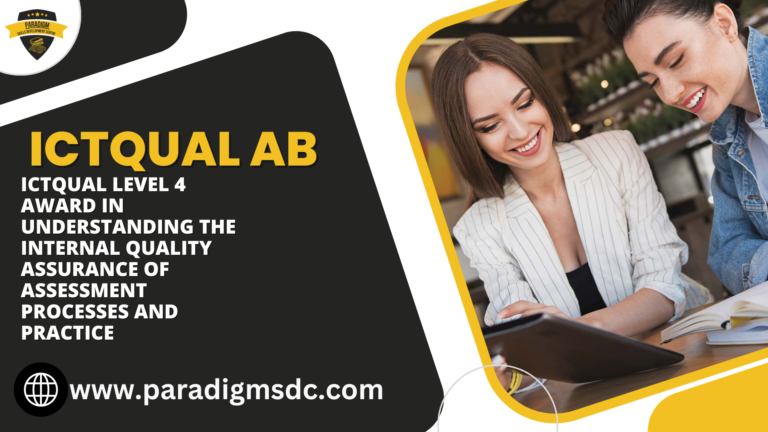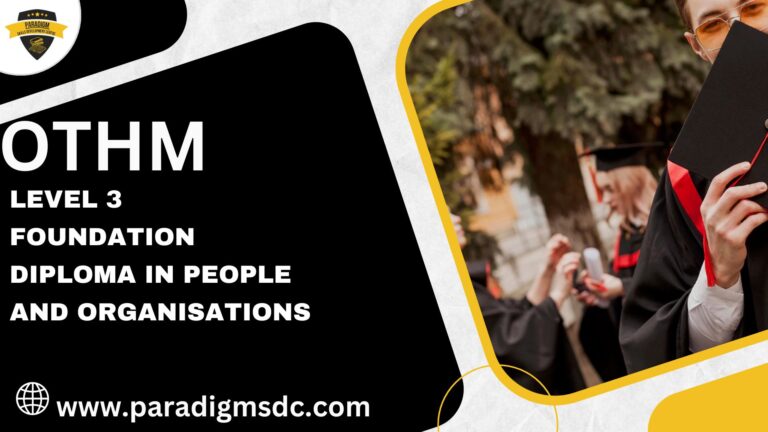Course Introduction
The ICTQual Level 3 Award in the Safe Administration of Lifesaving Medication is a specialized program designed to provide participants with the critical skills and knowledge required to administer lifesaving medications safely and effectively. This course is ideal for healthcare professionals, caregivers, and individuals responsible for medication administration in emergency situations. By completing this course, participants will be well-prepared to handle medical emergencies involving lifesaving medications, ensuring the best possible outcomes for patients.
Course Overview
This comprehensive course covers the principles and practices of safely administering lifesaving medications. It includes both theoretical knowledge and practical training to ensure participants are competent in various scenarios. Topics covered range from understanding different types of medications to mastering the techniques of administration and recognizing potential side effects.
Course Study Units
- Introduction to Lifesaving Medication
- Medication Administration Procedures
- Safety and Risk Management
- Patient Assessment and Monitoring
- Special Considerations
Learning Outcomes
Upon completing the ICTQual Level 3 Award in the Safe Administration of Lifesaving Medication, participants will be able to:
Introduction to Lifesaving Medication
- Understand the Types and Purposes of Lifesaving Medications:
- Identify various categories of lifesaving medications and their specific uses.
- Explain the therapeutic effects and indications for commonly used lifesaving drugs.
- Comprehend Pharmacokinetics and Pharmacodynamics:
- Describe how medications are absorbed, distributed, metabolized, and excreted in the body.
- Understand the mechanisms of action of different medications and how they achieve their therapeutic effects.
- Recognize Legal and Ethical Considerations:
- Discuss the legal responsibilities and regulatory frameworks governing medication administration.
- Understand the ethical principles related to patient consent, confidentiality, and professional accountability.
Medication Administration Procedures
- Master Various Routes of Administration:
- Demonstrate knowledge of different medication administration routes, including oral, intravenous, intramuscular, subcutaneous, and inhalation.
- Understand the advantages, limitations, and specific techniques associated with each route.
- Accurately Perform Dosage Calculations:
- Apply mathematical skills to calculate correct medication dosages.
- Ensure precision in dosage measurements to avoid underdosing or overdosing.
- Prepare and Handle Medications Safely:
- Follow proper procedures for preparing medications, including aseptic techniques.
- Handle medications in a manner that maintains their integrity and effectiveness.
Safety and Risk Management
- Identify and Mitigate Risks Associated with Medication Administration:
- Recognize potential risks such as medication errors, adverse reactions, and contraindications.
- Implement strategies to minimize risks, including adhering to the five rights of medication administration (right patient, right drug, right dose, right route, right time).
- Develop and Follow Emergency Protocols:
- Understand the steps to take in the event of an adverse reaction or overdose.
- Be prepared to use emergency equipment and medications appropriately.
- Ensure Compliance with Safety Standards:
- Follow established guidelines and protocols to maintain a safe environment for medication administration.
- Keep accurate and detailed records of medication administration to ensure traceability and accountability.
Patient Assessment and Monitoring
- Conduct Comprehensive Patient Assessments:
- Perform thorough assessments of patients’ medical histories, current conditions, and vital signs before administering medication.
- Use assessment findings to inform and guide medication administration decisions.
- Monitor Patients Effectively Post-Administration:
- Continuously observe and evaluate patients for therapeutic effects and potential side effects after medication administration.
- Adjust care plans based on ongoing patient assessments and responses to medication.
- Maintain Accurate Documentation:
- Record all relevant information related to medication administration, including dosages, times, and patient responses.
- Ensure documentation is clear, complete, and in compliance with legal and organizational requirements.
Special Considerations
- Administer Medications to Diverse Populations:
- Adapt medication administration practices to meet the unique needs of different patient groups, including pediatric, geriatric, and chronically ill patients.
- Understand how factors such as age, weight, and medical history can influence medication effects and dosages.
- Apply Cultural Sensitivity in Medication Administration:
- Recognize and respect cultural differences that may impact patients’ perceptions and acceptance of medications.
- Communicate effectively with patients from diverse cultural backgrounds to ensure understanding and compliance.
- Implement Advanced Medication Techniques:
- Gain proficiency in administering specialized medications, such as chemotherapy, biologics, and other advanced treatments.
- Understand the specific protocols and safety measures required for these advanced techniques.
Course Benefits
- Critical Skills: Gain essential skills for administering lifesaving medications safely.
- Confidence: Build confidence in handling medical emergencies involving medication.
- Community Impact: Enhance your ability to respond effectively in critical situations, benefiting your community.
- Certification: Earn a recognized certification that validates your expertise in the safe administration of lifesaving medication.
Who Is This Course For?
This course is suitable for:
- Healthcare professionals, including nurses and paramedics, who administer medications as part of their duties.
- Caregivers and support workers responsible for administering medications in residential or community settings.
- First responders and emergency personnel who need to incorporate medication administration into their skill set.
- Individuals seeking to enhance their knowledge and skills in lifesaving medication administration.
Future Progression
After completing the ICTQual Level 3 Award in the Safe Administration of Lifesaving Medication, participants can further their training and career in several ways, including:
- Advanced Medical Courses: Pursue higher-level certifications in emergency medical care and pharmacology.
- Specialized Medication Training: Enroll in courses focusing on specific types of medications or patient groups (e.g., pediatric medication administration).
- Professional Healthcare Training: Advance to more comprehensive healthcare programs, such as paramedic or nursing degrees.
The ICTQual Level 3 Award in the Safe Administration of Lifesaving Medication equips participants with vital skills and knowledge to make a significant difference in emergency medical situations. With this certification, you will be prepared to handle the complexities of lifesaving medication administration, ensuring patient safety and improving outcomes during critical moments.


